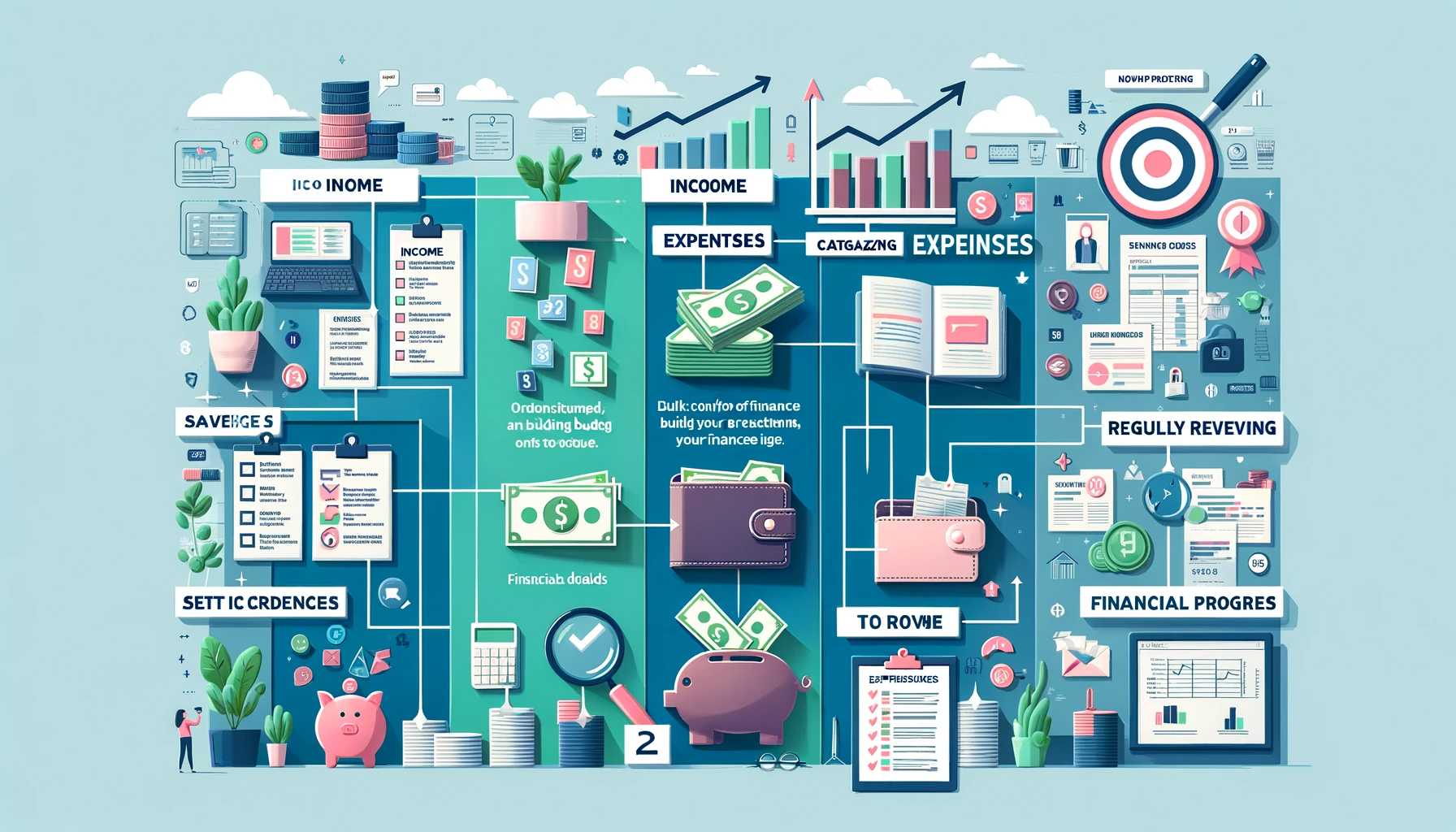Taking Control of Your Finances: Building a Budget and Tracking Expenses
Financial well-being is a cornerstone of a secure and fulfilling life. It empowers us to achieve our goals, manage unexpected challenges, and live comfortably. However, navigating the complexities of personal finance can be overwhelming, especially when it comes to managing your income and expenses.
This blog post delves into two fundamental pillars of financial control: building a budget and tracking your expenses. By mastering these essential skills, you can gain valuable insights into your spending habits, identify areas for improvement, and ultimately achieve your financial objectives.
Building a Realistic Budget:
A budget acts as a roadmap for your finances, outlining your income and allocating it towards various expenses. Creating a realistic and sustainable budget is crucial for effective financial management. Here's a step-by-step guide:
1. Gather Your Financial Information:
Income: List all your income sources, including salary, wages, bonuses, and any side hustle earnings. Be as precise as possible and consider any potential fluctuations.
Expenses: Categorize your expenses into essential (housing, utilities, groceries), discretionary (entertainment, dining out), and debt payments. Utilize bank statements, receipts, or credit card bills to gather accurate data.
2. Choose a Budgeting Method:
There are various budgeting methods, each with its strengths and weaknesses. Popular options include:
50/30/20 Rule: Allocate 50% of your income to essential needs, 30% to discretionary spending, and 20% to savings and debt repayment.
Zero-Based Budgeting: Assign every dollar of your income to a specific spending category, ensuring all income is accounted for.
Envelope Budgeting: Allocate cash for different spending categories in physical envelopes, promoting mindful spending.
3. Estimate Your Monthly Expenses:
Based on your gathered information, estimate your average monthly expenses for each category. Be realistic and consider potential seasonal variations.
4. Compare Income and Expenses:
Compare your total income with your estimated expenses. Ideally, your income should exceed your expenses, allowing for savings and debt repayment.
5. Adjust and Refine:
If your expenses exceed your income, identify areas where you can cut back. Be mindful of essential needs, but explore ways to reduce discretionary spending. Remember, budgeting is an iterative process. Continuously monitor and adjust your budget as your income or expenses change.
Tracking Your Expenses:
Once you have a budget in place, tracking your actual spending is crucial to ensure you stay on track. Here are some effective methods:
1. Utilize Budgeting Apps and Tools:
Numerous budgeting apps and online tools can simplify expense tracking. These tools allow you to categorize transactions, set spending limits, and generate reports to visualize your spending patterns.
2. Leverage Spreadsheets:
Create a simple spreadsheet to track your income and expenses. Manually entering transactions can enhance awareness and encourage mindful spending.
3. Utilize Traditional Methods:
Maintain a physical notebook or utilize note-taking apps to record your daily expenses. This method can be effective for individuals who prefer a more tangible approach.
4. Regularly Review and Analyze:
Review your expense tracking data regularly, ideally weekly or monthly. Compare your actual spending with your budget allocations. Identify areas where you are overspending and adjust your budget or spending habits accordingly.
Benefits of Building a Budget and Tracking Expenses:
Gaining Financial Clarity: By understanding your income and expenses, you gain a clear picture of your financial situation, empowering you to make informed financial decisions.
Identifying Spending Leaks: Tracking expenses helps you pinpoint areas where you might be overspending, allowing you to redirect your resources towards your financial goals.
Prioritizing Savings and Debt Repayment: A well-defined budget facilitates allocating funds towards savings and debt repayment, paving the way for financial security and future goals.
Making Informed Purchasing Decisions: When you are aware of your spending patterns, you are better equipped to make conscious and responsible purchasing decisions, avoiding unnecessary expenses.
Reducing Financial Stress: Taking control of your finances through budgeting and expense tracking can significantly reduce financial anxiety and promote a sense of financial stability.
Additional Tips for Effective Budgeting and Expense Tracking:
Set Realistic Goals: Start with small, achievable goals to avoid feeling discouraged. Gradually increase your savings or debt repayment targets as you gain confidence.
Be Flexible: Unexpected expenses can arise. Maintain a buffer in your budget to accommodate unforeseen circumstances.
Communicate and Collaborate: If you share finances with a partner or family, involve them in the budgeting and expense tracking process. Open communication fosters accountability and ensures everyone is aligned with your financial goals.
Seek Professional Help: If you struggle with creating or sticking to a budget, consider seeking guidance from a financial advisor or counselor. They can provide personalized advice and support to help you achieve your financial objectives









